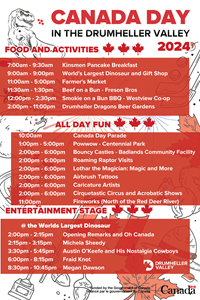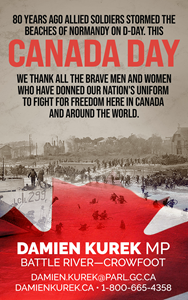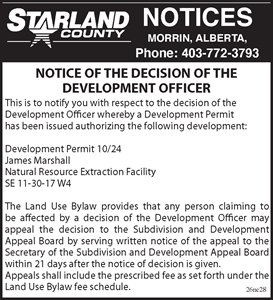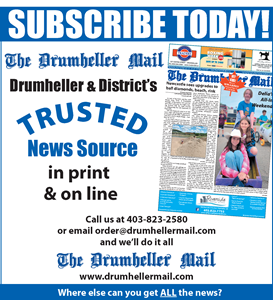
The 2019 federal election is less than a week away and while the conversation over coffee and online are fierce, and the daily news reports sound off on each day’s progress, one place where there are good conversations is in the classroom.
Social Studies teacher at St. Anthony’s Kurt Phillips says there is interest from his students in the election, some he says wasn’t evident when he began to teach the students.
“I think there’s less cynicism in some ways and certainly a greater awareness that what happens politically will affect students and their future,” said Phillips.
Peter Bjel, who teaches at DVSS says often it is the older students, the ones turning 18 show interest.
“Some students have definitely begun to formulate their political identity. For many, because they are not yet 18 and of voting age, this is still quite embryonic. Some students do mirror the discourse they hear from parents or relatives, or simply label themselves politically according to what they deem to be the prevailing ideology in rural Alberta,” said Bjel.
He adds some are still apathetic.
“Many still remain uninformed, or do not know how to – or want to – remedy this gap. While this might sound harsh, they say that politicians do not speak to or meaningfully connect with their issues and priorities,” said Bjel.
The election fits in with the curriculum at a number of levels, and discussion can enhance the students’ learning.
“The federal election would most easily be discussed in Social 30-1 and 30-2 as the focus is on ideological systems, however, it would be accurate to state it would be integrated through all the senior and junior courses through discussion of current events,” said Phillips. “There is a lot of course work but if done properly incorporating serendipitous events -- provincial or federal elections don’t occur all the time -- would enhance the material students are learning.”
Part of having a meaningful discussion on politics is making sure it is done in a positive and respectful manner. There are pitfalls.
“I had the experience of teaching a couple of classes just before, during and after the election of President Donald Trump in the U.S., and I definitely noticed a seismic shift among some members of the student body. It became acceptable to make disparaging and downright intolerant remarks about particular cultural, linguistic and religious communities, to scapegoat, or to don symbols or slogans of intolerance,” Bjel said.
“If students know they are in a space in which they know they can talk about their views, or to have dissenting conversations or lively arguments about political and social issues with their peers without being attacked or singled out, that definitely helps. However, I also believe many simply keep their views to themselves, particularly if there are a few openly vocal personalities in the classroom that make known their views.”
Phillips agrees there has to be a tone set in the classroom for a good debate.
“When I talk about politics in my class, I stress to my students that no matter what your political views are, it is important to be respectful to those whom you disagree with. I’m very open with my students about my own political perspective and I love a good and vigorous debate as part of a class discussion, but it is important for us all to hear each other out,” said Phillips. “It is also important not to vilify those politicians whom we may disagree with. Whether or not you are supportive of the policies of Trudeau’s Liberals or Scheer’s Conservatives, Singh’s NDP, or May’s Green Party it is important to recognize all of these people believe their views are what will work best for the country and it is our job to determine what we think will work.”
Bjel said in Alberta students are connected with some of the issues intimately.
“The continued fallout from 2014-2015’s global oil price drops and the ensuing economic downturn in oil-linked industries still reverberates, despite official claims this recession is over,” said Bjel. “In such challenging economic times, which have a bearing on families and socio-economic insecurity, negative political rhetoric, bitterness and the tendency to scapegoat becomes a lot more frequent.”
He adds students need to be mindful the information they receive is reliable.
“There has been a growing tendency to repeat and believe misinformation about our elected officials that, however much it has been discredited, still manages to make the rounds. I have also noticed the related tendency to dismiss (inconvenient) facts as ‘made up’ or ‘fake news,’” he said. “Political leaders around the world are comporting themselves thusly in the public eye by utilizing such rhetoric, and it is having an effect. Again, however, this is countered by students that have expressed an emboldened or renewed commitment to being informed and to make decisions surrounding important issues on their own.”
Bjel said DVSS is planning on participating in the Student Vote Initiative, including having a mock election and a discussion about the various political leaders and party platforms. This can lead to self-discovery.
“In previous elections, I have had students reflect upon their own beliefs and ideologies, and the kinds of issues that are important to them before voting, and I would like to do this again. Many students that felt they were of a particular political persuasion discovered they adhered to an altogether-different party platform or ideology.”



















